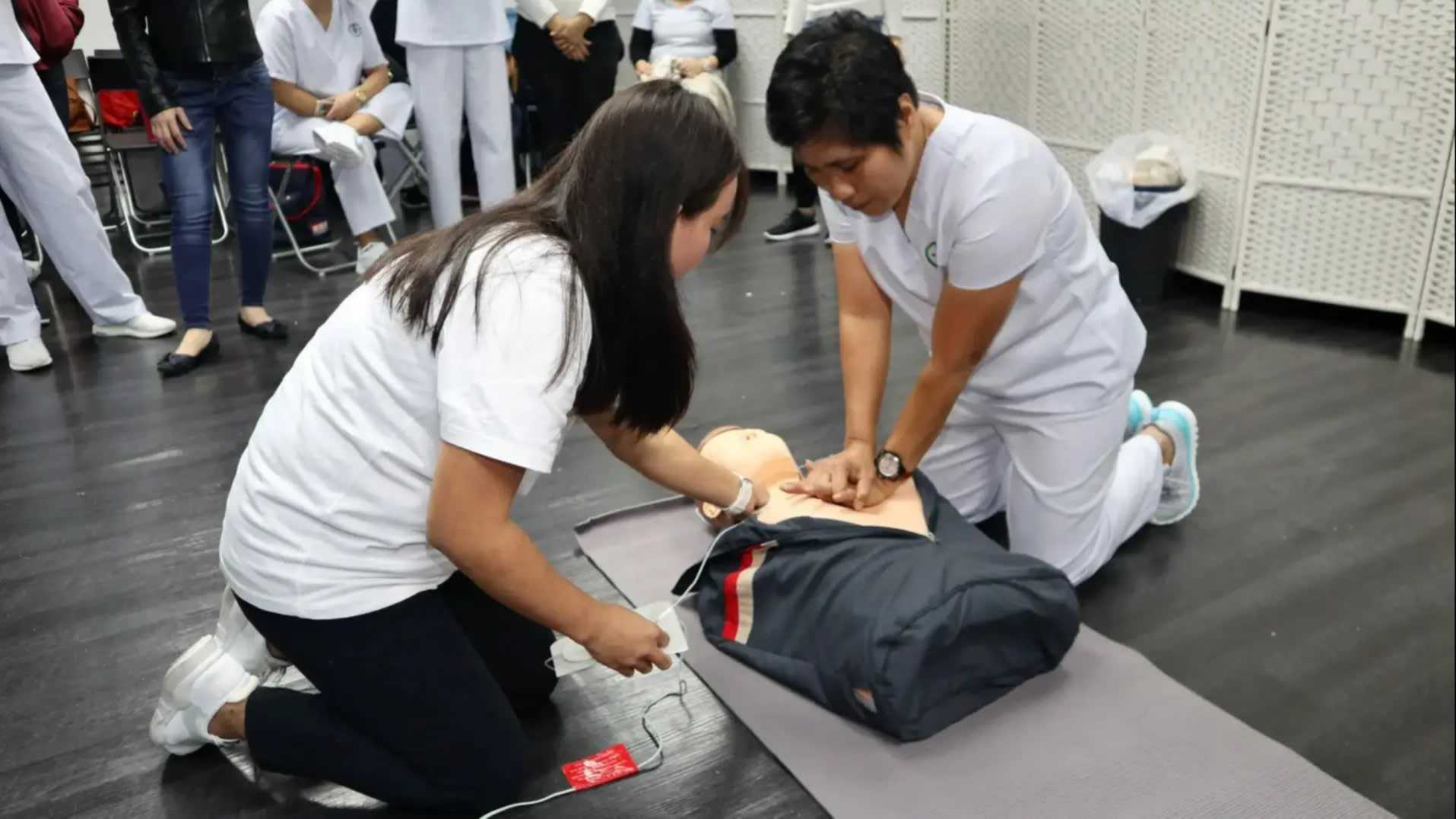Hong Kong housekeepers do double duty as nursing caregivers
13 February, 2019

Legions of Filipino and Indonesian housekeepers in Hong Kong are adding another task to their already long to-do lists: caring for the city's growing ranks of seniors.
The Chinese territory leads the world in longevity and is rapidly graying, fueling demand for nursing care. And since a large percentage of families already employ live-in domestic helpers, many are asking the housekeepers to look after aging parents, too.
The trend is giving the workers a chance to learn new skills but is also stirring concern about harsh conditions.
Myrna Alcantara, 47, who came to Hong Kong 10 years ago from the Philippines, said at this point she considers the family she works for part of her own family. "My employer's parents are old," she said. "I want to take care of them better."
A Singaporean nursing care company called Active Global Specialized Caregivers is training her to do that.
The company offers a nursing care course for domestic helpers, covering everything from feeding to toilet assistance to emergency responses. The program consists of 10 four-hour sessions on Sundays, typically the only day off for housekeepers.
At a session in Kowloon in January, an instructor demonstrated how to use an automated external defibrillator to get a stopped heart beating again.
Alcantana said she cooks food that is easy for the elderly parents to chew, and takes them to the doctor. Asked about the day's training, she said she found the CPR lesson a bit difficult but added, "This class is very useful."
Another participant, a woman in her 30s who gave only her first name, Maylene, said she has been working in Hong Kong for five years and often accompanies her employer's wheelchair-bound parents. The family, she said, is supportive of her receiving training.
Maylene added that she has recommended the course to a friend.
Alcantana and Maylene are two of the roughly 370,000 domestic helpers in Hong Kong -- a group that makes up nearly 10% of the city's working population. Housekeepers from the Philippines account for 54%, while Indonesians represent 43%.
The practice of hiring housekeepers caught on in the 1970s. At first, only the wealthy could afford them, but today many work in ordinary homes -- especially as more women in the city keep their jobs after marriage.
Among families with two working parents and at least one child, an estimated 44% hire helpers. And in 2017, the Hong Kong government came out with a forecast that the city will need 600,000 housekeepers in 30 years' time.
That increase would coincide with a dramatic increase in seniors, with residents aged 65 or older expected to account for 32% of the population in 2046, up from 16% in 2016.
Maylene said many foreign housekeepers are hopeful that, as demand for their services grows, they will be able to find better opportunities if they acquire nursing care skills.
But there is also real concern about working conditions. Even now, the hours tend to be long and wages are low.
By law, Hong Kong's domestic helpers are required to live with their employers. This means many end up working from early in the morning until late at night.
Some are not provided rooms of their own and are forced to sleep in the kitchen or living room, said Betty Wagner, deputy manager of Help for Domestic Workers, a group that provides legal counsel and practical assistance. In some cases, there have been reports of brutal abuse by employers.
"Helpers have to do everything -- cooking, washing, cleaning, taking care of children," Wagner said. "If we are to expand helpers' role [to nursing care], we have to think about it carefully."
Manuela Basto, board secretary of Help for Domestic Workers, stressed the need to increase protections for domestic workers.
"Helpers are excluded from the minimum working hours rule discussion," she said. "There is no pension system for them. They should be guaranteed the same labor rights as other ordinary workers."
At the same time, there is no denying the nursing care challenge Hong Kong faces. World Bank statistics show the average life expectancy is 84.2 years, exceeding aging Japan's 83.9. And the cramped city -- which has enough trouble finding space to build homes -- does not have sufficient nursing care facilities.
The crunch looks likely to force more domestic helpers to pick up the slack.
TAG(s):
